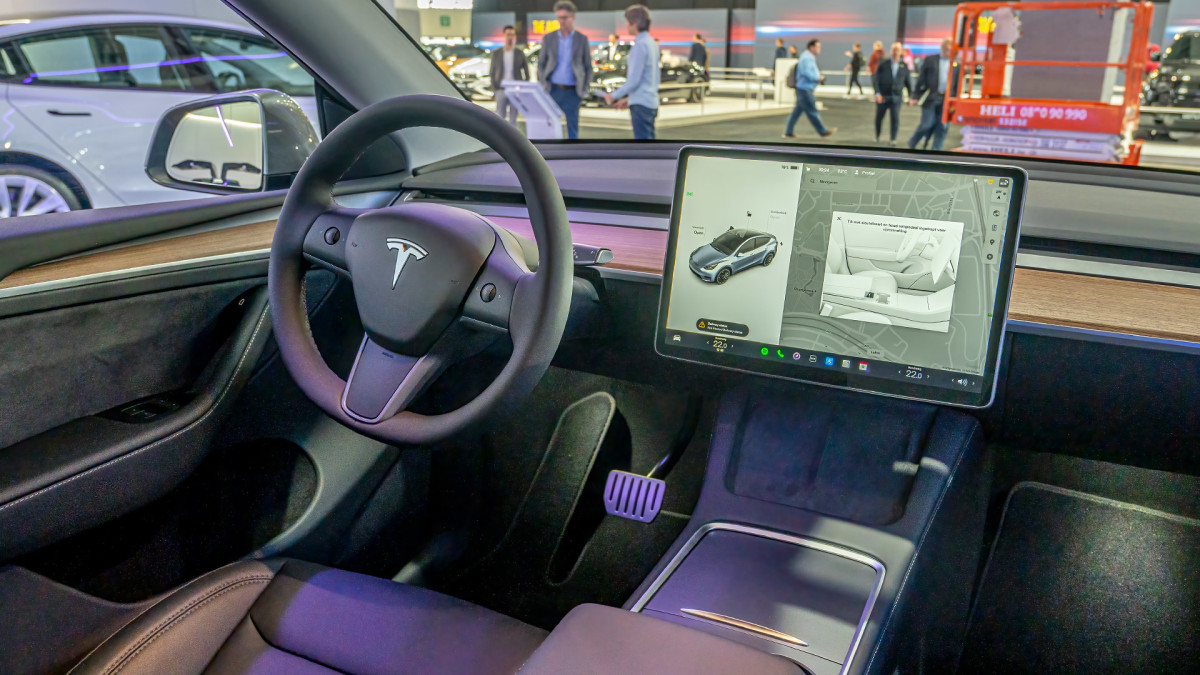
Elon Musk doesn't like the way you drive.
But don't take it personally. Tesla's (TSLA) -) chief executive doesn't think much of anyone's driving, an opinion he freely shared during an interview with Andrew Ross Sorkin at The New York Times' Dealbook conference.
DON'T MISS: Jim Cramer says that Elon Musk has a 'mental condition'
"All humans are terrible drivers," he said. "People text and drive, they drink and drive, they get into arguments, they do all sorts of things in cars that they should not do. So, it's actually remarkable that there are not more deaths than there are."
Sorkin had asked, "When will it be politically palatable in this country for people to die in cars that are controlled by computers?"
Even if autonomous vehicles could reduce the number of traffic deaths to 5,000 from roughly 35,000 to 40,000 each year in the U.S., he said, "do we think that the country will accept the idea that 5,000 people, that your family, might have perished in a vehicle as a result not of a human making a mistake, but of a computer?"
Problems with full-self-driving
"If you go worldwide I think there's something close to a million deaths per year due to automotive accidents," Musk said. "So, I think computer driving will probably drop that by 90% or more. It won't be perfect but it'll be 10 times better."
"Do you think that the public will accept that?" Sorokin asked. "Do you think the government will accept that?"
"Well, in large numbers it will certainly be so obviously true that it really cannot be denied," Musk said.
Sorkin turned to the issue of a timeline for autonomous vehicles. Timing has been something of a problem for Musk, who has been promising the world full-self driving vehicles for many years.
He even admitted during the electric vehicle maker's second-quarter-earnings call that he was "the boy who cried FSD" — before adding, "but man, I think we’ll be better than human by the end of this year."
Tesla said in an October filing with the Securities and Exchange Commission that it had received requests for information, including subpoenas, from the U.S. Department of Justice. The agency's requests included documents related to the company's autopilot and FSD features.
The California attorney general, the National Highway Traffic Safety Administration, the DoJ and the SEC are all actively investigating safety concerns tied to Tesla's driver-assistance technology.
For the Austin company's part, it reminds drivers that autopilot and full-self-driving systems do not render its cars fully autonomous. Drivers must keep hands on the wheel, remain fully attentive and be prepared to take over the driving at any time, the company warns.
Musk: 'pathological optimism'
And it's not just Tesla that's having autonomous-vehicle problems.
Last month, the California Department of Motor Vehicles, citing safety concerns, revoked General Motors' (GM) -) license to operate Cruise, the robotaxi arm of the automaker's business.
A few days later, Cruise said it was halting its driverless operations across all its fleets.
During the Dealbook interview, Musk, who claimed to have "pathological optimism," said that "we've certainly made a lot of progress."
"It's really now at the point where, in most places, it'll take you from one place to another with no interventions," he said. "And the data is unequivocal that supervised self-driving is somewhere around four times safer or maybe more than than just human driving by by themselves."
"Do you think it's another five or 10 years?" Sorkin asked.
"No, no, no, definitely not, definitely not," Musk replied.
When asked whether it is fair to investors who put their money into something that hasn't happened yet, Musk said most of them didn't think full-self driving would happen at all.
"It would be a fair criticism of me to say that I am late ... but it isn't ... I always deliver in the end," he said.
- Get exclusive access to portfolio managers’ stock picks and proven investing strategies with Real Money Pro. Get started now.







